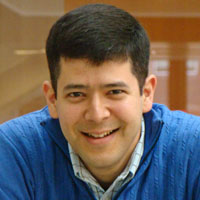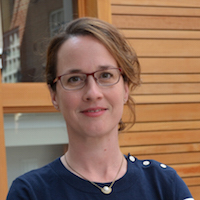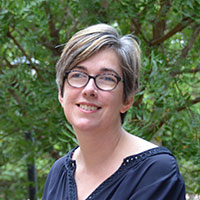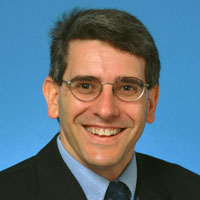Five new Gillings Innovation Labs awarded
October 5, 2017
Improvements to clean energy storage. Accessible screening tests for diabetic retinopathy. Better planning tools for opioid abuse responders. These are the potential of new research projects at UNC Gillings School of Global Public Health.
Five teams of UNC Gillings School of Global Public Health researchers and their collaborators have been awarded new funding for Gillings Innovation Laboratory awards (GILs), beginning this fall.
Gillings School awardees include Orlando Coronell, PhD, associate professor of environmental sciences and engineering; Stephanie Engel, PhD, associate professor of epidemiology; Emily Gower, PhD, associate professor of epidemiology; Stephen Marshall, PhD, professor of epidemiology at the Gillings School and director of the UNC Injury Prevention Research Center (IPRC), and co-principal investigator Kristen Hassmiller Lich, PhD, assistant professor of health policy and management; and Steven Meshnick, MD, PhD, professor of epidemiology.
The GIL awards offer faculty members support to advance early-stage innovations and implement proven solutions into practice across local and global communities. The awards are administered by Research, Innovation and Global Solutions, the Gillings School unit that manages programs funded by the $50 million Gillings gift.
This sixth round of awards brings to 31 the number of projects that have been funded as GILs since 2007. Previous awards have facilitated the development of new ideas, technologies and methods, and provided research training to dozens of students and postdoctoral fellows. GIL award recipients have gone on to secure more than $44 million in additional related funding, launch related companies, and forge new, cross-disciplinary partnerships and collaborations.
Thirty teams submitted proposals for consideration this year. Reviewers across the university considered a number of factors, including the proposals’ innovation, potential for significant public health impact, scientific rigor and capacity for rapid or broad translation of the results into practice.
This year’s funding round placed a special emphasis on implementation science, encouraging submission of proposals that would promote the adoption and integration of evidence-based practices, interventions and policies into routine health care and public health settings. The funded proposals provide solutions to a wide range of public health problems.
One, led by Coronell and Wei You, PhD, professor of chemistry and applied physical sciences at UNC, will develop a novel technology that more than doubles the efficiency of saltwater-based batteries.
Engel will lead the first-its-kind research study to link environmental toxicants to early brain development, using state-of-the-art imaging tools.
Gower and Seema Garg, MD, PhD, associate professor of ophthalmology in the UNC School of Medicine, will lead a pilot program that integrates cutting-edge retinal imaging technology and two-step image evaluation in pharmacy settings.
Marshall and Hassmiller-Lich will lead an initiative to collaborate with state agencies, using systems science methods to enhance cross-agency collaboration and capacity in response to North Carolina’s opioid epidemic.
Meshnick will lead a feasibility study to identify and halt mother-to-child transmission of hepatitis B in the Democratic Republic of Congo.
“At the 10-year mark of granting Gillings Innovation Lab awards, we have seen awardees make remarkable contributions to public health,” said Julie MacMillan, MPH, managing director of the Research, Innovation and Global Solutions unit at the Gillings School. “The research teams have made inroads against infectious diseases, obesity, diabetes, methodologic problems in cancer trials, health inequities, environmental problems and more. As a result of their discoveries through Gillings Innovation Labs, several faculty members substantially have changed their research foci. We track and admire these researchers’ important accomplishments, but we are especially proud of the ways in which they have taken chances in new areas, with new partners, to solve problems in innovative and exciting ways.”
Read more details about the projects here.
Gillings School of Global Public Health contact: David Pesci, director of communications, (919) 962-2600 or dpesci@unc.edu






